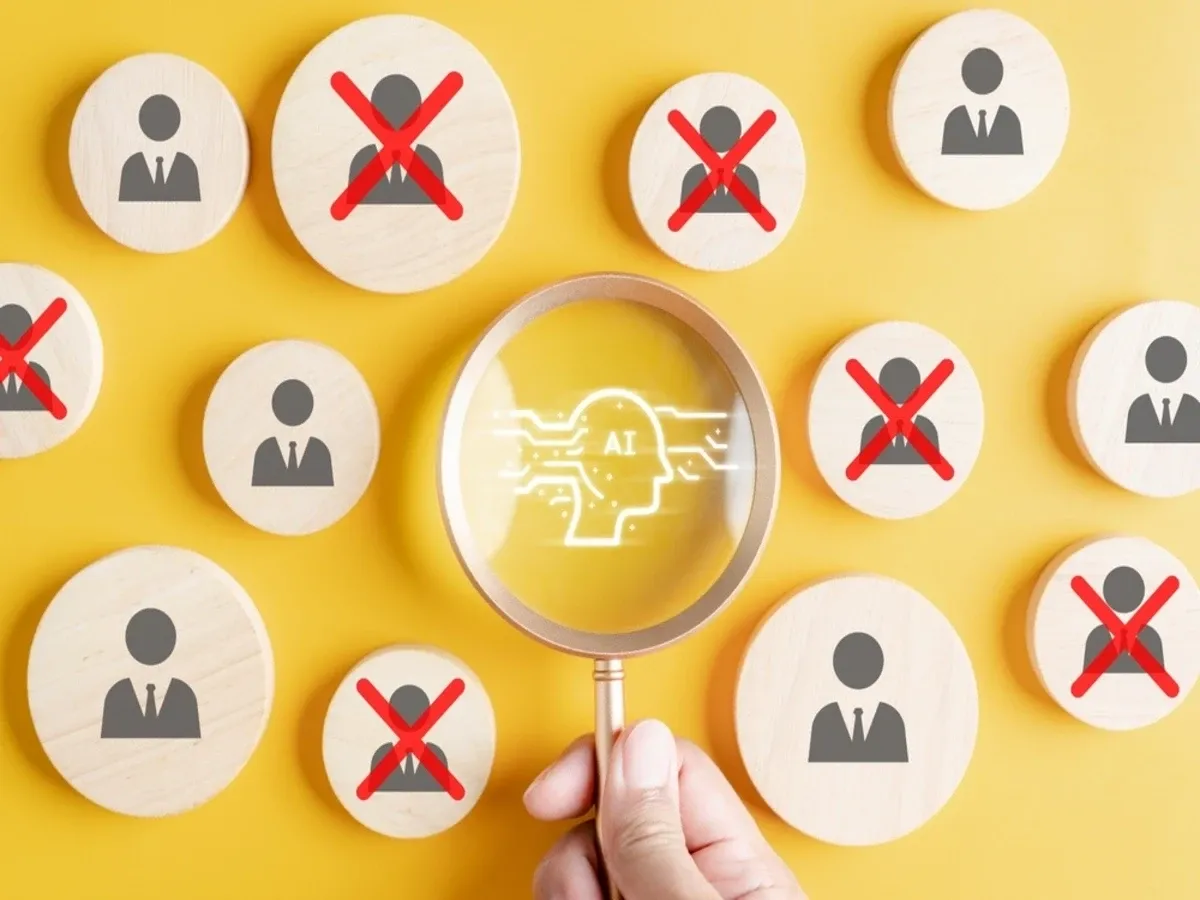Upstox Originals
Why ‘unlearn and relearn’ is your only AI survival plan

4 min read | Updated on October 28, 2025, 19:32 IST
SUMMARY
Most working professionals feel AI is a major threat to jobs in India and across the world. However, experts predict that AI will lead to a job transformation, not complete elimination. For India's workforce, reskilling is an urgent need and a key to survival. Without reskilling, India risks losing 2 million jobs. To stay relevant in the future, professionals must learn evergreen skills.

Around 2 million jobs in the tech services and customer experience sectors are at risk without reskilling | Image: Shutterstock
Everyone is scared of the new monster in town: Artificial Intelligence or AI. While it’s not so new now, its full impact on the future of work is still unknown and that makes it feel like a threat to professionals. And while experts claim that predictions about technology reducing the need for human labour have a poor track record, workers are already uncomfortable with the idea of coexisting with AI.
So how large and immediate is the threat and what are the ways by which humans can continue to remain relevant in the age of AI?
Job displacement and change
According to the Goldman Sachs 2025 report, AI could replace close to 300 million jobs globally but it will also lead to a plethora of new jobs and a boom in productivity. Reports also suggest that nearly all occupations will be affected, but most jobs will be changed and not fully eliminated. But the consensus across research reports is that AI will lead to a dramatic change in the skills and roles needed to survive in the future workplace.
As for India, government think tank Niti Aayog, in a 2025 report, has highlighted both the risks and opportunities for India’s workforce. Around 2 million jobs in the tech services and customer experience sectors are at risk without reskilling the workforce. But on the bright side, AI could generate up to 4 million new jobs within these sectors over the next 5 years.
New in-demand roles like AI engineer, prompt engineer, AI ethics specialist, AI trainer and many others will emerge.
What is needed is urgent action. If no action is taken immediately to reskill, headcount in the country’s tech services sector could fall from 7.5 million to 6 million by 2031 as predicted by Niti Aayog.
Skills that matter in the AI age
Dr. Srinivas Padmanabhuni, AI expert and co-founder of AiEnsured, a provider of testing suites for AI products, stresses the importance of upskilling and reskilling. “Those who will be successful are those who can unlearn and relearn skills,” he says. According to Dr. Padmanabhuni and other experts, here are some skills that are needed to prepare for the onslaught of AI.
Testing
According to experts, the domain of testing will remain evergreen. “As long as there is AI, it is important to ensure that systems work. Testing profiles for conventional applications may come down, but new categories of testing may emerge like testing of AI systems,” says Dr. Padmanbhuni. The emergence of machine learning and AI have made product testing even more relevant. Testing in the future will focus on automation, AI integration, security and performance testing.
Learnability
Learnability refers to the ease with which a skill can be acquired. It is a key aspect of human-computer interaction but also describes how easily a person can acquire new knowledge and skills. “Learnability is a skill which is about being able to relearn, unlearn in order to pick up a new skill,” states Dr Padmanabhuni underscoring the importance of learnability.
Empathy
Empathy is a uniquely human skill that will remain relevant despite technological advancements. Experts emphasise its crucial competitive advantage in the age of automation. It is essential for tasks requiring emotional insights, relationship-building and trust. In areas like mental health and crisis response, this skill can be the key differentiator. “Understanding business requirements, business analysis, understanding of domain analysis, formulating right requirements, all need empathy,” adds Dr. Padmanabhuni. According to experts like him empathy is an evergreen skill that AI is far from replicating.
AI ethics and compliance
The use of AI has brought the question of ethics and compliance into sharp focus. The full potential of AI technology can only be harnessed when public trust is earned and risks can be mitigated. Unchecked AI can cause catastrophic harm. Global regulations have emerged to counteract these risks. Mitigating financial, legal and reputational risks has become more important than before. Ethics and compliance have therefore become a business imperative leading to new roles in the job market. Dr. Padmanabhuni states, “As people start integrating AI in their lives, it’s important for them to understand the ethical boundaries.” He emphasises the responsible usage of technology and this is another area where jobs are emerging. Roles related to governance, responsible AI, accessibility testing are flooding the job market as AI gains prominence.
According to experts, all roles will become AI-assisted, which would become the new in-demand skill. Therefore, being conversant with AI in your specific field of work would go a long way in helping you stay relevant in the near future.
By signing up you agree to Upstox’s Terms & Conditions
About The Author
Next Story
